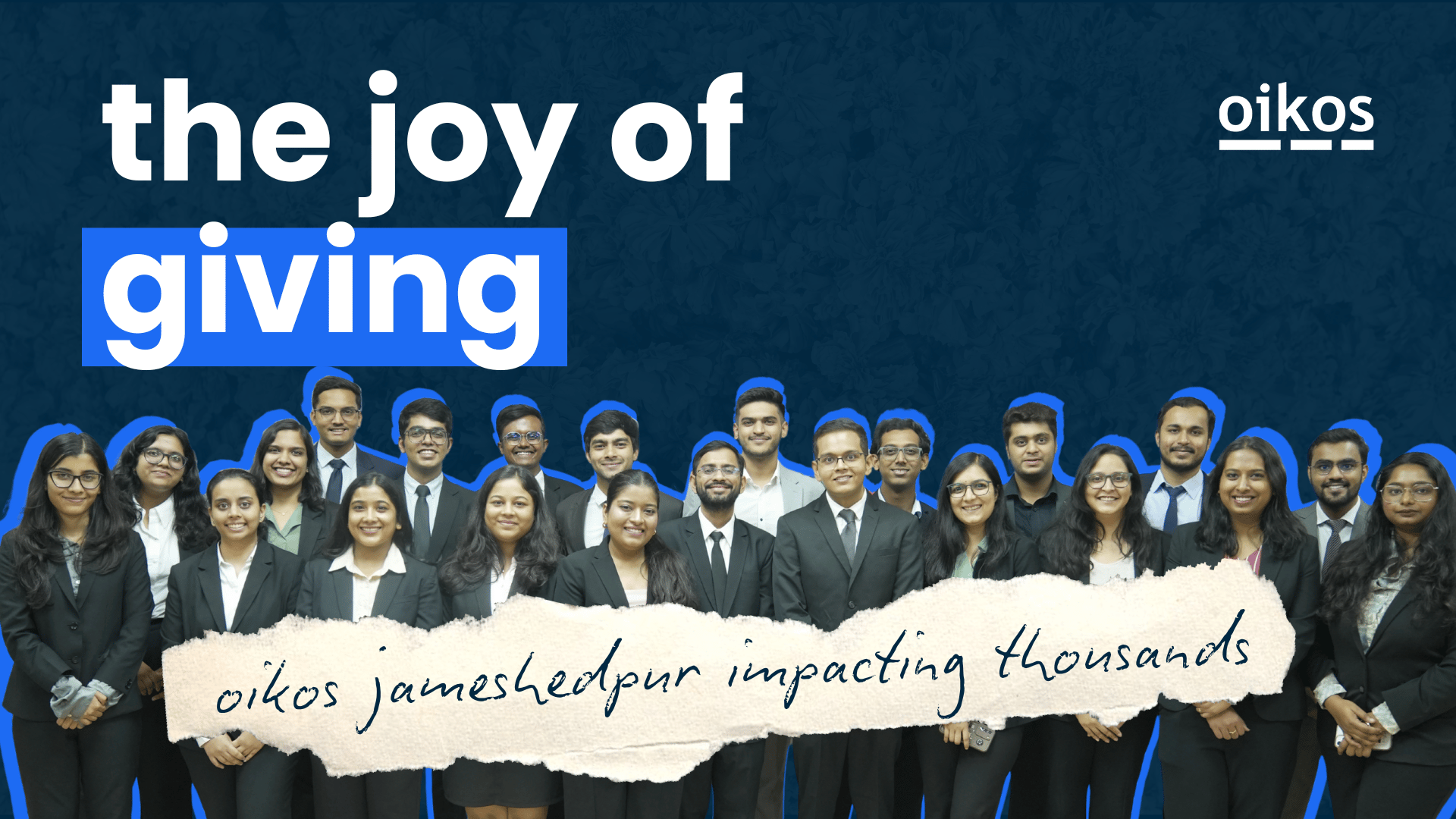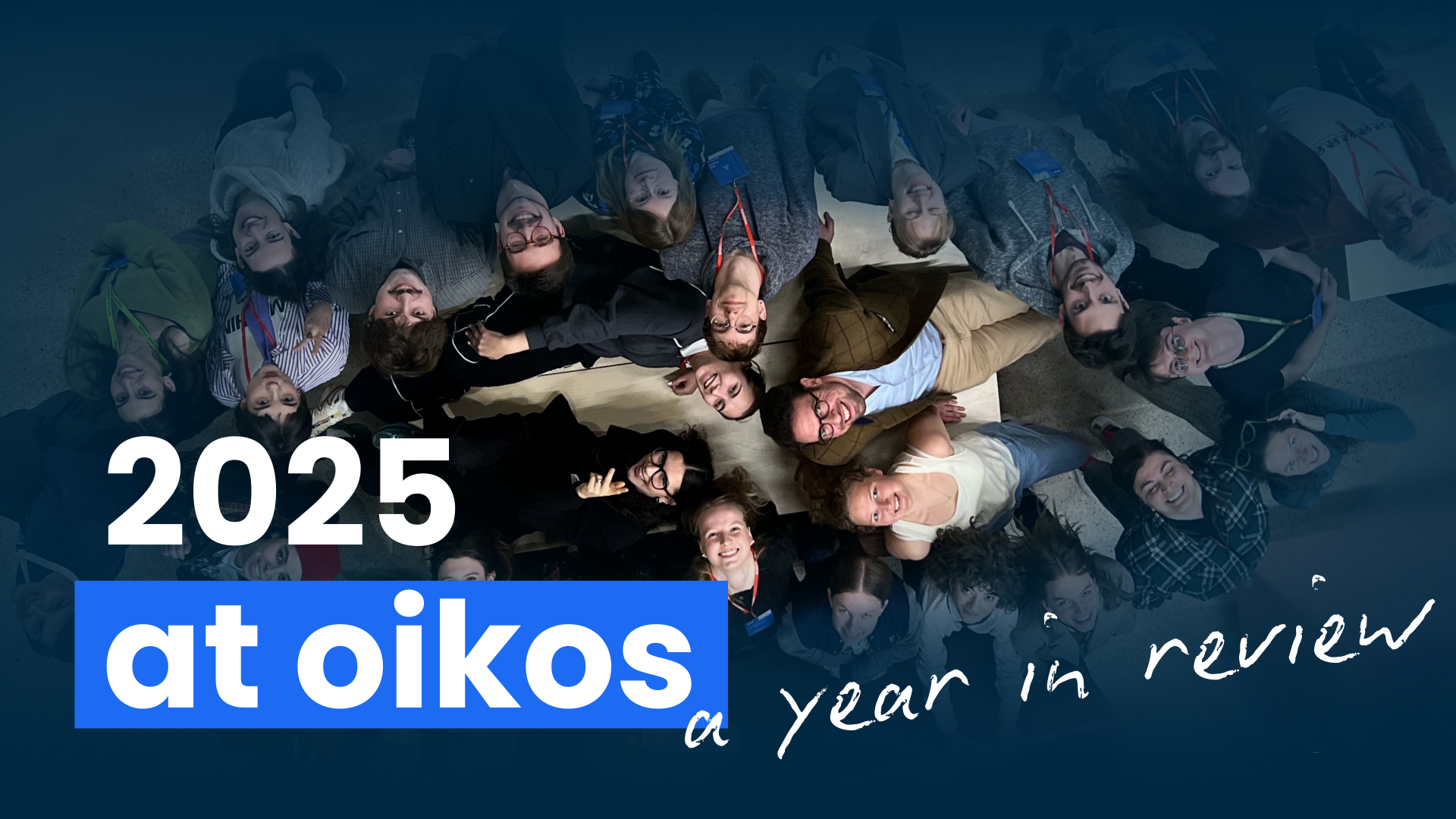
What does sustainability mean? Why and how do we act and inspire towards sustainability as an organization? How do we make sure that the change we make is sustainable as such? Many questions – here we outline some answers that manifest our standpoint from a scientific perspective.
Climate change, drastic biodiversity decline, poverty, inequality, mass migration: these are only some examples of the sustainability challenge our world is facing at the moment. To move ahead on the path towards sustainability, we all have to act together and will have to rethink the ways we think, create and interact as a society. For oikos and many others, economics and management are two fields at the core of the needed transformation- and in particular the education in these fields. This is where we at oikos aim to help shifting the basic mode of operation onto a sustainable path – and thus widening the walls of the funnel and stabilizing our ecological and social systems.
Sustainable Development at oikos – our theory of change
At oikos, sustainable development is at the core of our purpose – and more specifically the sustainable development and transformation of the higher education system and how we understand, teach, learn and use economics and management for the good of people and planet.
We do that by empowering and encouraging student change agents and actively creating shifts in the way curricula are structured and developed. We have over 40 active student groups in 23 countries and 4 continents that contribute to this vision in very creative and self-organized ways. The local groups feed their developments back into an inspiring international community of like-minded thought leaders.
We nurture the leaders of tomorrow: The philosophy of change agents doesn’t only guide our actions, but also the direction where we wish to see the system shifting: to support individuals in becoming sustainability leaders, education has to focus on fostering students to have “an enhanced understanding of themselves, their abilities and desires, as well as a more profound understanding of their fellow humans and the world they inhabit” (Bodinet 2016, 21)
One thing that cannot fall short: if we aim to contribute to the transformation of education and sustainable development in economics and management, a critical question that needs to be asked is: how do we define sustainability to inform tangible, strategic action that shifts our unsustainable course?
Our sustainability definition – the 8 sustainability principles
The eight sustainability principles (3 environmental, 5 social principles):In a sustainable society, nature is not subject to systematically increasing… 1. …concentrations of substances extracted from the Earth’s crust (e.g. fossil carbon or metals); 2. …concentrations of substances produced by society (e.g. CFCs or NOx); 3. …degradation by physical means (e.g. overfishing or overharvesting of forests);and, in that society, people are not subject to structural obstacles to … 4. …health (e.g. by dangerous working conditions or insufficient rest from work); 5. …influence (e.g. by suppression of opinions); 6. …competence (e.g. by obstacles for education or insufficient possibilities for personal development); 7. …impartiality (e.g. by discrimination, unfair selection to job positions or ); 8. …meaning-making (e.g. by suppression of cultural expression)Have a look at these videos to learn more: a) b) c) |
Using the Sustainability Principles as a definition gives a rigid frame in practice to analyse, cluster and understand positive and negative contributions to sustainable development in a holistic way.
How we use our sustainability definition
For oikos, sustainable development is development within the boundaries of our planet, so to say a development that does not diminish the functioning of our system, but rather aims at fostering these functions. The 8 SPs provide a clear, operational definition of sustainability that can be adopted by any organization in combination with their existing purpose, values and goals to define organizational success in a way that enables strategic action to be taken in that direction. And that’s also how we use it: Our definition of sustainability frames all our organizational activities and decisions, in particular in the fields of
- Organizational foundations: our purpose, values, mission, vision are framed by the SPs to make sure we act in a sustainable manner
- Program design & execution: when creating our programs and conducting them, we make sure not to violate any SP
- Fundraising: Our principles for fundraising include alignment with our sustainability definition. Donors are only accepted if they do not systemically violate any of the SPs.
- Team development: Also our internal processes and structures have to consider the principles, especially the social ones. We are a social system ourselves 🙂
- IT & ethical data processing: ethics and sustainability in data handling is an important topic for us. The SPs help us to clarify what we are talking about.
When we plan and do all of these things, we scan them through the SPs and make sure to spot as many critical violations and positive contributions as possible.
Want more details? This article is a short summary of the publication you can read in full here.



